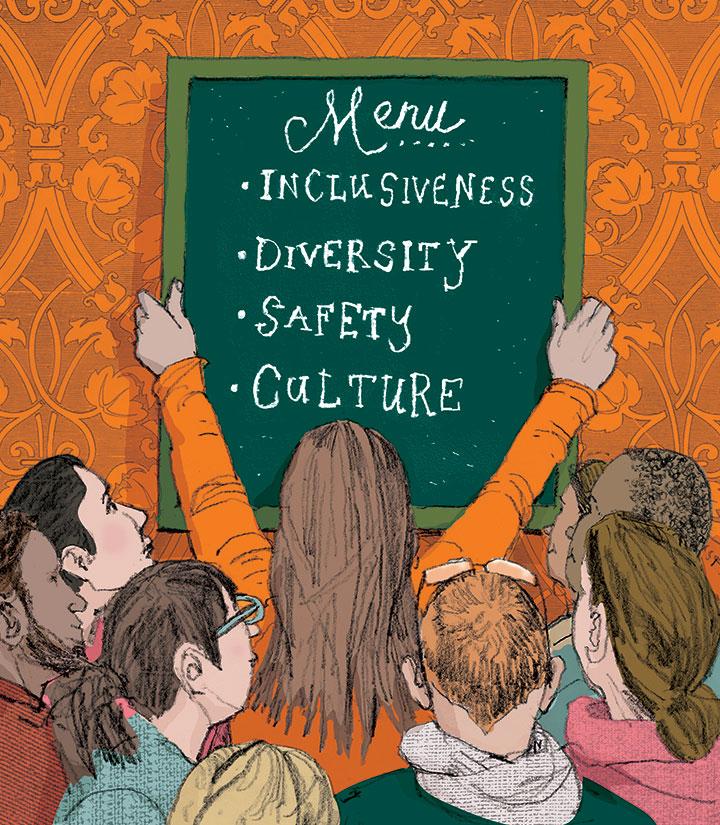
Princeton’s eating clubs are testing Ginsburg’s theory this year. Nine of the 11 clubs have elected women as their presidents, the most ever. (Cap and Gown and Charter were the exceptions.) For the first time, Cottage and Cannon Dial Elm have female presidents.
Further illustrating the diversity of the club presidents, two are Asian American, one is African American, and one is Latino.
Tower Club president Rachel Macaulay ’19 said she considered seeking a lesser position, but decided that she would rather handle the big-picture issues facing the club. Presidents have a greater chance than other officers to influence club policies, she said.
Macaulay helped organize this year’s bicker process at the club. That convinced her that she wanted to add the responsibilities of an officer position to her other roles on campus, because she realized that she wanted to foster the welcoming community that she had found at Tower. The first thing she did as president was learn the name of every new member.
The concentration of women in leadership roles will likely bring more attention to issues surrounding sexual assault on the Street, Macaulay said. Although the clubs have taken significant steps in recent years to protect students, University surveys have found that there is still a link between parties at the clubs and sexual assault.
Another major initiative of the eating clubs this year is to become more welcoming to the entire campus, said Sarah Spergel ’19, president of Quadrangle Club. She worries that the clubs are not accessible to underclassmen, and that many students have little experience in the clubs in addition to parties.
Members’ social lives should not be restricted to their own eating clubs or the rest of the Street, Spergel said. “You should still be meeting new people constantly, and that’s what I’m trying to do.”
When Quad invited the entire student body to a Latin dance class in January, she said, many nonmembers came, especially freshmen. A similar workshop was planned this month with Naacho, one of Princeton’s South Asian dance groups.
The increased representation of women on the Street has been in the making for decades, said Lisa Schmucki ’74, who serves as adviser to the undergraduate and graduate InterClub councils. She noted that the first woman elected as an officer of an eating club — Cap and Gown — was Kinsley Morse ’74, who died in January.
Increasing diversity among the clubs’ leadership may change the atmosphere and priorities of the clubs, but it is unlikely to end their century-long reign as Princeton’s primary social hubs. Today’s students still make fond memories over dinners, study sessions, and parties in the clubs, even if the membership looks different than it did in the past.

